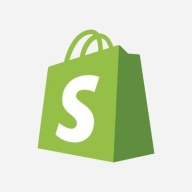


Find out what your peers are saying about Salesforce, Adobe, Shopify and others in eCommerce Platforms.
| Product | Market Share (%) |
|---|---|
| Salesforce Commerce Cloud | 12.4% |
| Adobe Commerce | 11.9% |
| Shopify | 9.4% |
| Other | 66.3% |



| Company Size | Count |
|---|---|
| Small Business | 22 |
| Midsize Enterprise | 3 |
| Large Enterprise | 5 |
| Company Size | Count |
|---|---|
| Small Business | 15 |
| Midsize Enterprise | 8 |
| Large Enterprise | 10 |
| Company Size | Count |
|---|---|
| Small Business | 9 |
| Midsize Enterprise | 1 |
| Large Enterprise | 2 |
Adobe Commerce offers IT teams a versatile solution to effortlessly launch personalized commerce experiences while ensuring security and speed, all without starting from scratch. It provides a solid foundation of commerce functionality that allows businesses to swiftly enter the market with confidence. With pre-configured composable services, businesses can easily deploy and integrate these services to enhance their commerce foundation. The platform also supports the creation and integration of secure and scalable applications that extend native capabilities and seamlessly integrate with third-party solutions in a serverless PCI-compliant environment. Thanks to App Builder tools, customization becomes more accessible, reducing the overall cost of ownership.
For commerce teams, Adobe Commerce provides a dynamic platform that adapts as customer needs evolve. It enables omnichannel personalization through commerce data, delivering personalized content, promotions, recommendations, and site search through advanced AI and machine learning. This translates to an increased reach to new markets, brands, or business models. The platform empowers users with business-specific, user-friendly tools infused with AI capabilities, thereby enhancing marketing and merchandising efforts. Moreover, businesses can expand their commerce capabilities further by choosing from a vast array of free and premium apps and extensions available in the Commerce Marketplace, covering everything from back-office integrations to customer experience solutions, making it a comprehensive and flexible commerce solution.
Salesforce Commerce Cloud offers scalable and customizable eCommerce solutions ideal for consumer packaged goods and retail businesses, featuring robust CRM and order management capabilities.
Salesforce Commerce Cloud is a dynamic eCommerce platform known for its strong mobile support and seamless third-party integrations. It enables businesses to personalize user experiences and efficiently manage leads and opportunities. Despite facing challenges with integration and pricing for small businesses, its scalability and partner ecosystem make it highly adaptable for diverse needs.
What are Salesforce Commerce Cloud's key features?Salesforce Commerce Cloud is widely implemented in sectors like retail and consumer packaged goods for its CRM functionalities, customized order management, and automation capabilities. Businesses utilize it to create omnichannel platforms and tailored user experiences, especially benefitting financial, insurance, and banking services through its integrability.
Shopify is an easy to use, fast, and secure eCommerce platform. Its CMS platform comes with several dynamic and useful features to help users create and manage their websites. The solution’s high-end security features, insightful analytics, user-friendly interface, and vast range of third-party integrations makes it one of the top platforms in the market.
Shopify Features
Shopify has many valuable key features. Some of the most useful ones include:
Shopify Benefits
There are several benefits to implementing Shopify. Some of the biggest advantages the solution offers include:
Reviews from Real Users
Below are some reviews and helpful feedback written by PeerSpot users currently using the Shopify solution.
Badrilal P., Shopify Developer at Freelance, says, “Shopify can be used without any coding knowledge; just drag and drop and configuring, those are the basics. It's a great solution for people who are in the initial phase of their business. They can use it to easily set up a store that includes product info, product pricing, add to cart, payment methods, gateway integration, menus, contact us forms, and inquiry forms. Anyone can set those features up in one day using Shopify. That's a huge benefit for our customers.”
PeerSpot user Tushar K., Co-founder at Dotmagic Infotech/Shopify Expert at Dotmagic Infotech, mentions, “The most valuable features are the core structure and backend structure. Our clients are easily able to manage their sites at the backend. Shopify provides an easy to use service at the backend that includes product upload, customer service, team settings, and team customization. It is all very easy to handle.”